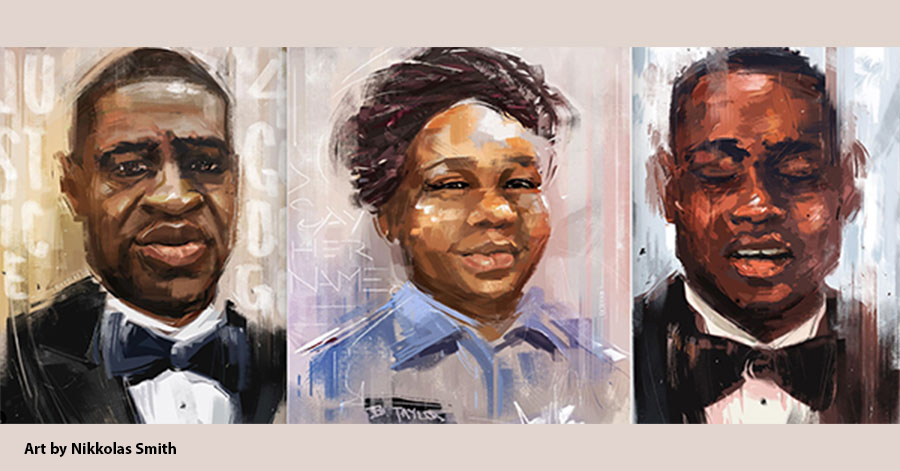Noticias
In Solidarity and for Action: Mourning George Floyd
In Solidarity and for Action: Mourning George Floyd
by Rut Martinez-Alicea — Director of Equity, People, Culture & Administration
The grief our community is immersed in — now, with over 100,000 confirmed people lost to COVID-19 in the US — is infinitely compounded by the loss of yet another Black American man at the hands of the police. Our community lost George Floyd to lethal police violence this past Memorial Day, Monday, May 25th, 2020 in Minneapolis, Minnesota. Our hearts ache and mourn.
Individually, we may experience this loss to different degrees. We may experience the threat of losing hope and succumb to hate and cynicism. We may struggle to find grounding in the midst of such intense pain. We can also honor these very real feelings and experiences while still reaching out — or within — for hope and inspiration.
The disproportionate lethal police violence against black and brown bodies mirrors the disproportionate impact that COVID-19 has had among communities of color, in addition to national education achievement gaps and health inequities, which is just the tip of the iceberg. These deficiencies and injustices mirror the disproportionate experience of food insecurity among communities of color right here in Oregon and SW Washington. Our work addressing hunger and our lived experiences tell us of the undeniable and deeply consequential reality of racism and other forms of systemic inequities. Namely:
- While Black Americans constitute 1/7th of the U.S. population and whites are 3/4th of the population, the threat of lethal police violence against Black Americans is three times greater than it is for whites.
- In states like Wisconsin, the Black community makes up just six percent of the population, but Black people make up 25 percent of coronavirus cases and 39 percent of COVID-related deaths.
- The Navajo Nation now has the highest rate of COVID-19 infections in the country, surpassing New Jersey and New York
- While the national rate of food insecurity is 11%, Black Americans face nearly triple the rate of hunger as whites — despite making up only 14% of the U.S. population.
But our hearts don’t ache for numbers — we mourn for people, for our community. Our hearts ache and we seek the healing that solidarity and collective action can bring.
At Oregon Food Bank, our equity values call and commit us to both: solidarity and action. We are with and for one another. We firmly stand with our Black American community as allies, as fellow Black Americans and people of color. And together we work to find pathways to healing and justice.
Oregon Food Bank honors the pain of those who carry the wounds of racism closest to their hearts by recommitting to our mission, to our equity journey and to justice. We dedicate ourselves to the families and communities impacted over and over again by the ultimate consequence of bigotry. And in doing so, we recommit to our very selves — because we are all part of this community, and we all aspire to build what Dr. King called The Beloved Community.
Join us as we continue working towards a more just America — a nation that dismantles racism, addresses inequities and ends hunger for good.
